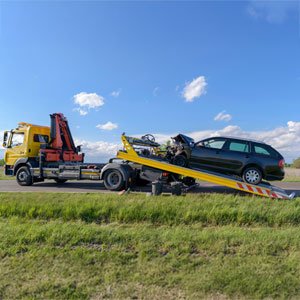No Coverage For Non-Policyholders While Driving Rental Cars In Florida
Car AccidentsIn the case of Allstate Insurance Company v. Marlene Harmon, Case Number 17-23202-CIV-MORENO (U.S. Dist. Ct. S. Dist. Fla. March 21, 2018), a federal judge in U.S. District Court for the Southern District of Florida granted summary judgment to Allstate regarding coverage for a non-policyholder while driving a vehicle rented by the insured.
Facts Of The Case
This accident happened in 2016 when Tatiana Sanches and Jose Gomez (who had been in an accident with each other and gotten out of their respective vehicles) got hit by Steven Waldman who was driving a rental car (rented by Marlene Harmon). The case opinion seems to hint that Waldman and Harmon were in a relationship but were not married (that is likely the reason why Waldman was driving the rental vehicle). Sanches died from her injuries while Gomez survived but was injured.
While there was a lawsuit against Waldman and Harmon, this case is a declaratory action filed by Allstate to avoid coverage. Because the trial judge granted summary judgment in favor of Allstate, Allstate’s auto policy did not have to provide coverage while Waldman was driving the rental vehicle.
Allstate’s Policy Language
Allstate’s policy language clearly provided coverage for Harmon (policyholder) while driving a rental car. However, there was an exclusion in the liability section of the policy that states:
bodily injury or property damage arising out of the use of a non-owned auto, substitute auto or non-owned utility auto, being driven by someone other than you or a resident relative.
Because Waldman was not married to Harmon and was not a named insured (policyholder), he was not covered under Allstate’s policy for bodily injury.
What Can The Injured Do?
The only potential remedy left after the summary judgment for Allstate is to sue Enterprise Rent-A-Car, however, the Florida Supreme Court’s decision in Vargas v. Enterprise Leasing Co., 60 So. 3d 1037 (Fla. 2011) tells us that Florida’s financial responsibility laws are pre-empted by the federal “Graves Amendment” in 49 U.S.C. § 30106.
In order to have collectibility against Enterprise Rent-A-Car, the plaintiff would need to be able to show that the rental agency was negligent (by either renting to a person without a license, not requesting proof of insurance before renting, or negligently performing maintenance so as to cause the crash). In virtually all rental agreements, you can expect to find a contractual requirement that the renter not permit third persons to drive the rental vehicle.
Therefore, the only thing Harmon could have done differently (if she thought that there was any possibility that she might let Waldman drive) would have been to add Waldman as a driver to the rental contract and then Enterprise Rent-A-Car should have known by looking at the insurance card that Waldman was not a rated driver on the policy. In such a situation, it is likely that Enterprise would have required Waldman to purchase insurance through the rental agency.
Alternatively, Waldman could have had his own vehicle and his own automobile policy which would have covered him for this accident.
Regardless, when there is no coverage, it is not the insured who gets hurt—it is the people who were hurt in the accident that get hurt, not the insured.
Legal Absurdity Is Sometimes The Legal Reality
Both the Harmon and Vargas cases show us how absurd automobile insurance in Florida can be. Even if you wanted to be “responsible” and read the fine print of your policy, unless you have experience as an insurance lawyer, then chances are that you would never have thought that your “Good Hands” automobile policy would ever have landed in such an absurd spot. Further, your agent probably would have been of little or no help as would have been the people at the rental counter.
Considering that Central Florida is an international tourism hub, there is a possibility that there are far more uninsured rental cars on the roadways and the people driving them have no idea. There is not a green light in the car that indicates that insurance is active versus inactive. This is why automobile insurance contracts should not only be strictly construed against the insurance company but also why “public policy” is supposed to prevent insurance company from masterfully writing their contracts in ways that unfairly maximize profit by avoiding claims.
The solution for this issue from an “activist” judge who is concerned about public safety should have found that public policy does not allow an insurance company to exclude coverage for a rental vehicle while the renter is physically occupying the vehicle and gave permission to a third party to drive the renter as a passenger. You could just as easily say that if the rental agency does not have legal liability while a car is being rented (because of federal law), then the owner of the vehicle during the rental period is the renter (after all, isn’t the renter responsible for any damage to the vehicle during the rental period anyway?).
Again, there is no light in the car that switches from green to red when you go from having coverage into a coverage exclusion. As such, automobile policies should be written for real life and not merely to line the pockets of insurance companies at the expense of the public (who is required to purchase auto coverage).
Seek Help If You Have Been Hit By A Rental Vehicle In Florida
If you have been injured in a car accident with a rental vehicle in Florida, you will need the help of a car accident attorney in Lakeland, Florida for help with your case. Call us today to schedule your free car accident consultation.


